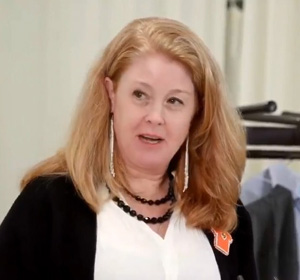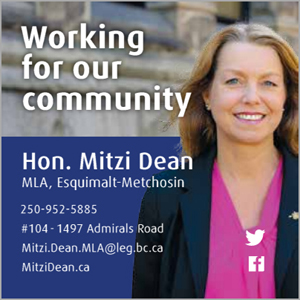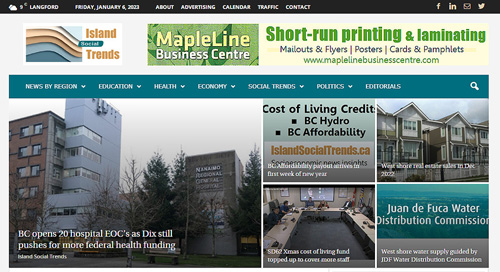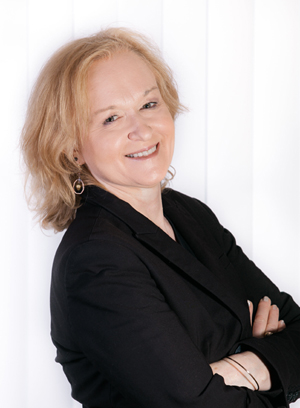
Monday January 9, 2023 | VANCOUVER, BC [Updated 6 pm]
by Mary P Brooke, B.Sc. | Island Social Trends
BC aims to get nurses into the health-care system more quickly by introducing more efficiencies into the accreditation process for internationally educated nurses (IENs).
The announcement was made today by Premier David Eby and Health Minister Adrian Dix at the Science and Technology Building of Langara College in Vancouver.
Government support toward this goal includes new financial supports and a faster, more efficient assessment pathway.
It’s about the government getting creative with ways to utilize available expertise for staffing in the health-care system (upon confirmation of qualification). The government has also recently expanded the number of seats for medical students at UBC and is organizing the launch of a new school of medicine at SFU.
The province will be needing 26,000 more nurses in the next eight years.
Today’s announcement could see as many as 2,000 more nurses fast-tracked into the system within the next four months.

Fees no longer payable up front:
IENs will no longer be required to pay application and assessment fees upfront, which cost more than $3,700. These fees will be covered directly by the Province in order to remove financial barriers for internationally educated workers who want to work in BC, it was explained by Minister Dix today.
“Supporting nurses is key to our work to making health care accessible to all British Columbians. Still, the demand for nurses is outpacing the supply,” said Premier David Eby.
“There are talented and skilled nurses with the right experience who want to practise in BC and support high-quality care, but they are kept on the sidelines by an expensive and complicated registration process. Whether a nurse was trained in or out of the province, we are ready to welcome those who are ready to care for British Columbians.”
“In addition to what we did last April is ensuring that supports are available up front,” said Dix today. “People don’t have to pay and then get reimbursed; they can go directly into the system,” he said.
More nurses on the job within nine months:
Within four to nine months the more efficient accreditation process will see more IENs in the system. That compares to the process often taking up to two or three years.
More efficient process:
The efficiency will be achieved by the National Nursing Assessment Service (NNAS) assessing education, English-language proficiency and nursing competency before the BC College of Nurses and Midwives (BCCNM) assesses an application.
More options will now be available for completing a credential evaluation, starting January 2023.
1. Introducing more options for completing a credential evaluation.
- Currently, evaluation can only be done through the National Nursing Assessment Service, which can take as long as two years.
- An IEN will have the option to have their credentials evaluated by a number of assessment agencies.
2. Reducing up-front out-of-pocket costs, as eligible IENs have the most significant upfront application costs that can cost more than $3,700 per applicant.
3. Applying an updated approach to assessing English-language proficiency.
- Updated language-testing benchmarks will be used.
- IENs can still support their English-language competency level through other forms of evidence, such as demonstrating experience working in an English-speaking health-care setting or where education was in English.
4. Streamlining the assessment process.
- NCAS will assess education, English-language proficiency and nursing competency before BCCNM assesses an application.
- Having the assessments completed at one time, by one organization, will simplify the process for applicants.
5. Continuing to provide pathways to multiple health-care roles in the nursing family (e.g. registered nurse, licensed practical nurse, health-care aide).
On top of 2022 announcement:
In April 2022, government announced $12 million to provide bursaries for IENs, launch a new marketing campaign, provide navigational supports to new and incoming IENs through HealthMatch BC, and launch a consolidated assessment approach. This has enabled some IENs to join the health-care system more quickly in the role that most closely matches their education and experience.
Since then, 5,500 people have expressed interest in working in BC, with 2,000 people actively working through the various stages of the registration and assessment process. More than 90% of nursing applications received in 2022 by the BC College of Nurses and Midwives (BCCNM) came following these changes.
English language assessment:
“Language proficiency issues are a key part of that,” the health minister said today regarding the process of getting more IENs into the active health-care delivery system.
Part of the accreditation process is about ensuring that IENs can ‘speak, hear and read’ the English language. This is fundamental to understanding medical charts, instructions for care, and listening to both co-workers and patients.

The English language assessment portion is about determining “that people for the most part can meet them (the required standards)”, said Cynthia Johansen, CEO and Registrar at BC College of Nurses and Midwives, who was one of the nursing professionals at today’s government announcement.
That possibly sounds like a revision from requiring top-notch English proficiency, which could be a concern for patients and their families.
“The college has been involved in a project nationally with other regulators of nurses to look at the standards, the requirements, the benchmarks, for language proficiency, and we’ve made some changes and we’ve implemented them,” said Johansen today.
“These changes not only help to ensure that we’ve matched the right score requirements on things like speaking, and hearing and reading with the work that’s required to nurse. So we have been very thoughtful to make sure that we do not in any way compromise safety by reducing or misaligning the requirements, but also making sure the requirements we have in place are reasonable and that people can for the most part meet them,” the CEO of the BC College of Nurses and Midwives said.
“So that’s what we’ve done and we’ve made those changes,” said Johansen.
She added: “We’ve implemented a number of other process changes so that people can meet it up front and quickly and again the funding supports that have been offered by the provincial government will be key to helping move people through the process faster. So that if they have to take a language proficiency test that they have funding in place to pay for it.”
Nurses returning to practice:
The Province is also providing new financial support to nurses returning to practice after a period of absence.
Nurses looking to return to practice will no longer be required to pay a $300 application fee, and more than $4,000 in financial support will be available to cover assessment and eligible travel costs for nurses taking assessments in order to re-enter the workforce.
Nurses returning to practice will also be eligible to access as much as $10,000 in bursaries for any additional education required for returning to practice.
Many nurses quit during or after the peak of the COVID-19 pandemic, due to burnout.
Toward providing reliable health-care:
“By removing the barriers for more nurses to join our health-care workforce, we are ensuring that people throughout the province have greater access to the health services they need, when they need them,” said Adrian Dix, Minister of Health.
“Our government will continue to take action to recruit and train more health-care workers to meet the health-care needs of British Columbians. In creating more accessible careers for nurses in BC, we are delivering on our commitment to build a sustainable health system for many years to come.”
Parliamentary Secretary for Senior’s Services and Long-Term Care:
“The Province is committed to making it easier and less costly for internationally educated nurses and return-to-practice nurses to become licensed to practise in British Columbia and join the health workforce,” said Harwinder Sandhu, Parliamentary Secretary for Senior’s Services and Long-Term Care.
“As a nurse educated outside of Canada, I have first-hand knowledge that it could take years for an IEN to be granted registration. I am glad to see the progress made by the BC College of Nurses and Midwives, and the Nursing Community Assessment Service to streamline the process for credential and competency assessments for IENs. The contribution of IENs to our health care is far reaching. They bring a wealth of experience, knowledge and dedication to their work. I am proud of our government’s commitment to welcoming more people to join the nursing profession so that our public health system can be well-supported in the long run.”
In September 2022, the Province also committed up to $1.3 million to set up a new pathway to make it more efficient for IENs to obtain licensure in BC. The funding will support BCCNM and the Nursing Community Assessment Service in creating a new streamlined approach to assessment and registration, so that more IEN applications can be assessed by BCCNM each year. This is expected to reduce the waiting period for nurses looking to work in BC, from three years to approximately four months to nine months.
This announcement is part of BC’s broader Health Human Resources Strategy, which was announced on Sept. 29, 2022. The strategy supports patients by ensuring they get the health services they need and are cared for by a healthy workforce. It focuses on 70 key actions to retain, recruit and train health-care workers, while redesigning the health-care system to foster workplace satisfaction and innovation.
===== ABOUT ISLAND SOCIAL TRENDS:
Island Social Trends covers news of the west shore (Langford, Colwood, Metchosin, Highlands, View Royal, and also Sooke) at islandsocialtrends.ca .
Regional news coverage by Island Social Trends Editor: Mary P Brooke has been undertaken with a socioeconomic lens since 2008: first as MapleLine Magazine 2008-2010, then the weekly Sooke Voice News 2011-2013, the weekly West Shore Voice News 2014-2020, and as the fully online Island Social Trends news portal starting mid-2020.
Leaders in business and politics are invited to subscribe to Island Social Trends: Free ENews | Premium Subscription
===== ARCHIVES: HEALTH | POLITICS | VANCOUVER ISLAND | ECONOMY









